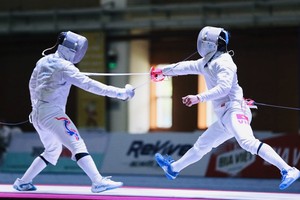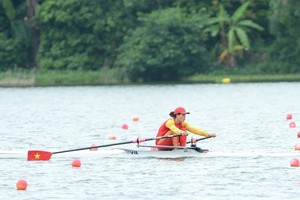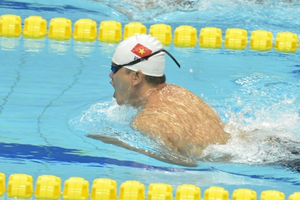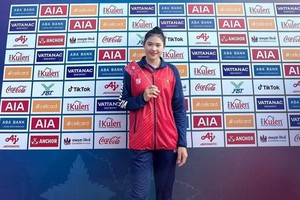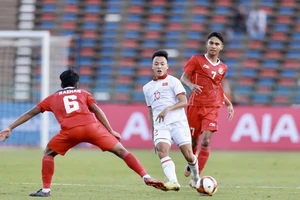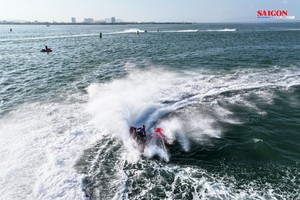JOHANNESBURG (AFP) - South Africa is riding a wave of patriotism ahead of the World Cup, which national leaders hope will heal the still-sharp racial divide 16 years after the end of white-minority rule.
For weeks the Rainbow Nation's flag has fluttered over black and white neighbourhoods. South Africans are learning the verses of their multi-lingual national anthem sung in languages other than their own. And lines to buy World Cup tickets are many hued.
"It is heartening to see how the entire nation is united in support," said President Jacob Zuma, who every Friday wears the national side's jersey.
"This harmony should define us and resonate in a wide range of spheres even outside sports," he added.
South Africa has a history of using sport to promote democracy.

During the apartheid era it was the opponents of racial segregation who taught them that lesson, pressuring international sports bodies to boycott South Africa's whites-only teams.
Their campaign succeeded in seeing South Africa excluded from cricket competitions in 1968, from the Olympics in 1970, and from football's governing body FIFA in 1976.
After the first all-race elections in 1994, sport became a medium for delivering messages of racial reconciliation.
During the rugby World Cup final in Johannesburg in 1995, the first black president Nelson Mandela won over white sceptics by donning a Springboks jersey, representing a team then associated with his former oppressors.
But sport in modern South Africa remains starkly divided.
-- The World Cup won't change those gaps -- The white minority, about 10 percent of the population, still prefers rugby and cricket. In 2007, South Africa's world champion rugby team counted 13 whites, two mixed-raced players, and no blacks.
And when whites watch football, they usually follow European clubs.
Local football fans are overwhelmingly black, a legacy of apartheid when stadiums provided a rare public gathering place on game nights.
From June 11 to July 11, fans of all races are set to gather in the stands, as they did last weekend for a rugby match and a football match in the historic township of Soweto.
"There will be levels of excitement. How can there not be? We have been a pariah for so long during apartheid. We didn't even play the World Cups," said Ashwin Desay, a sociology professor who edited a book about sports and politics in South Africa.
"Suddenly, you got all this adulation and attention. Of course, you're excited," he said.
"But after the party, there will be a huge hang-over," he said. "National unity can't be built on soccer, especially in a country where the inequalities take such a racialised form."
In South Africa, unemployment among whites is four percent, but among blacks it's 40 percent. And the inequalities are growing. Since 1994, the median income among blacks rose 37.3 percent, while whites' incomes rose 83.5 percent.
The World Cup won't change those gaps.
"We have realised that the 2010 FIFA World Cup is not meant for the poor but for the rich," said Abahlali baseMjondolo, an activist in Cape Town's shantytowns.
"It has not brought any change into our lives."

